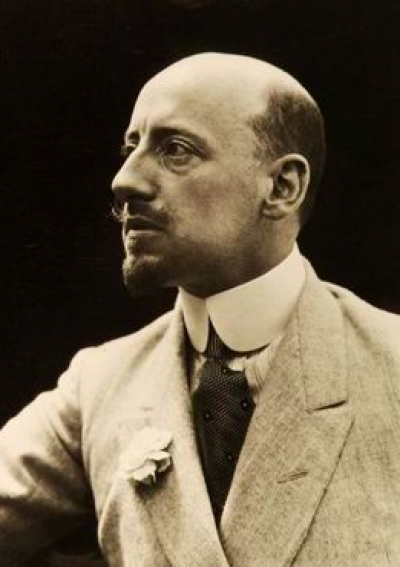The Index Librorum Prohibitorum ("List of Prohibited Books") was a list of publications deemed heretical or contrary to morality by the Sacred Congregation of the Index (a former Dicastery of the Roman Curia), and Catholics were forbidden to read them.There were attempts to ban heretical books before the sixteenth century, notably in the ninth-century Decretum Glasianum; the Index of Prohibited Books of 1560 banned thousands of book titles and blacklisted publications, including the works of Europe's intellectual elites. The 20th and final edition of the index appeared in 1948, and the Index was formally abolished on 14 June 1966 by Pope Paul VI.The Index condemned religious and secular texts alike, grading works by the degree to which they were seen to be repugnant to the church. The aim of the list was to protect church members from reading theologically, culturally, or politically disruptive books. Such books included works by astronomers, such as the German Johannes Kepler's Epitome Astronomiae Copernicanae (published in three volumes from 1618 to 1621), which was on the Index from 1621 to 1835, works by philosophers, such as the Prussian Immanuel Kant's Critique of Pure Reason (1781), and editions and translations of the Bible that had not been approved. Editions of the Index also contained the rules of the Church relating to the reading, selling, and preemptive censorship of books.The canon law of the Latin Church still recommends that works should be submitted to the judgment of the local ordinary if they concern sacred Scripture, theology, canon law, or church history, religion or morals. The local ordinary consults someone whom he considers competent to give a judgment and, if that person gives the nihil obstat ("nothing forbids"), the local ordinary grants the imprimatur ("let it be printed"). Members of religious institutes require the imprimi potest ("it can be printed") of their major superior to publish books on matters of religion or morals.Some of the scientific theories contained in works in early editions of the Index have long been taught at Catholic universities. For example, the general prohibition of books advocating heliocentrism was removed from the Index in 1758, but two Franciscan mathematicians had published an edition of Isaac Newton's Principia Mathematica (1687) in 1742, with commentaries and a preface stating that the work assumed heliocentrism and could not be explained without it. A work of the Italian Catholic priest and philosopher Antonio Rosmini-Serbati was on the Index, but he was beatified in 2007. Some have argued that the developments since the abolition of the Index signify "the loss of relevance of the Index in the 21st century."J. Martnez de Bujanda's Index Librorum Prohibitorum, 16001966 lists the authors and writings in the successive editions of the Index, while Miguel Carvalho Abrantes's Why Did The Inquisition Ban Certain Books?: A Case Study from Portugal tries to understand why certain books were forbidden based on a Portuguese edition of the Index Librorum Prohibitorum from 1581.
General Gabriele D'Annunzio, Prince of Montenevoso (UK: , US: , Italian: [ɡabriˈɛːle danˈnuntsjo]; 12 March 1863 – 1 March 1938), sometimes written d'Annunzio, was an Italian ultra-nationalist, poet, playwright, orator, journalist, aristocrat, and army officer during World War I. He occupied a prominent place in Italian literature from 1889 to 1910 and later political life from 1914 to 1924. He was often referred to under the epithets Il Vate ("the Poet") or Il Profeta ("the Prophet").
D'Annunzio was associated with the Decadent movement in his literary works, which interplayed closely with French Symbolism and British Aestheticism. Such works represented a turn against the naturalism of the preceding romantics and was both sensuous and mystical. He came under the influence of Friedrich Nietzsche which would find outlets in his literary and later political contributions. His affairs with several women, including Eleonora Duse and Luisa Casati, received public attention.
During the First World War, perception of D'Annunzio in Italy transformed from literary figure into a national war hero. He was associated with the elite Arditi storm troops of the Italian Army and took part in actions such as the Flight over Vienna. As part of an Italian nationalist reaction against the Paris Peace Conference, he set up the short-lived Italian Regency of Carnaro in Fiume with himself as Duce. The constitution made "music" the fundamental principle of the state, which was corporatist in nature. Though D'Annunzio preached Italian ultranationalism and never called himself a fascist, he has been accused of partially inventing Italian fascism as both his ideas and aesthetics were an influence upon Benito Mussolini.

1911May, 9
The works of Gabriele D'Annunzio are placed in the Index of Forbidden Books by the Vatican.
Choose Another Date
Events on 1911
- 14Jan
Amundsen's South Pole expedition
Roald Amundsen's South Pole expedition makes landfall on the eastern edge of the Ross Ice Shelf. - 31May
Porfirio Díaz
The President of Mexico Porfirio Díaz flees the country during the Mexican Revolution. - 24Jul
Machu Picchu
Hiram Bingham III re-discovers Machu Picchu, "the Lost City of the Incas". - 29Aug
Native Americans in the United States
Ishi, considered the last Native American to make contact with European Americans, emerges from the wilderness of northeastern California. - 12Dec
Calcutta
Delhi replaces Calcutta as the capital of India.

 English
English  español
español  français
français  português
português  русский
русский  العربية
العربية  简体中文
简体中文 